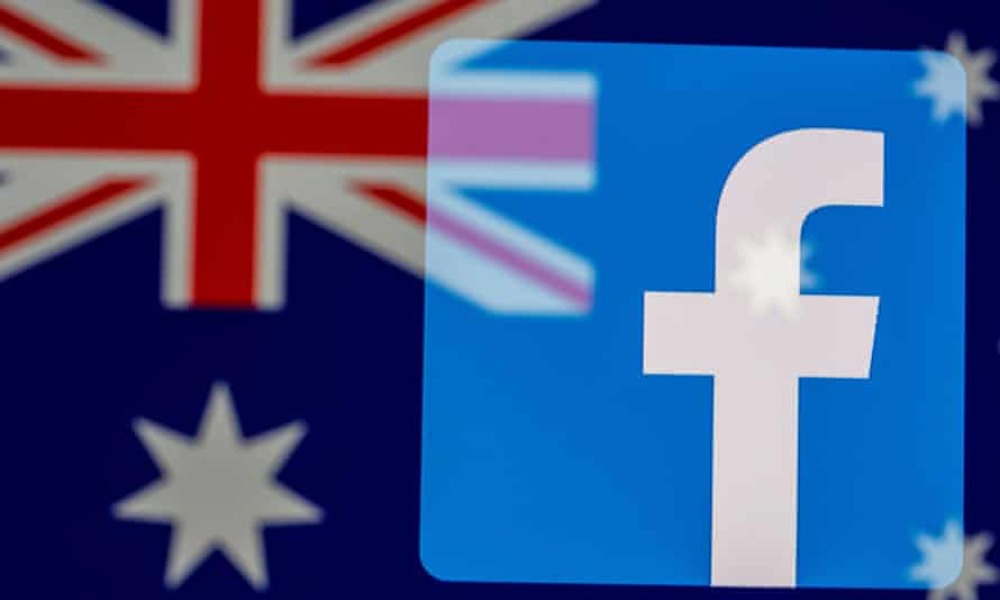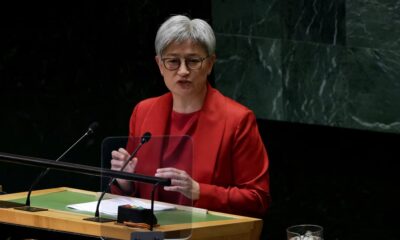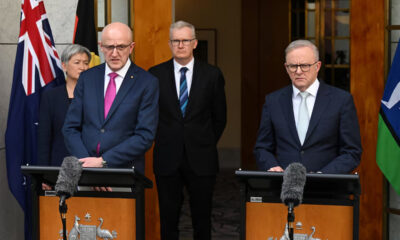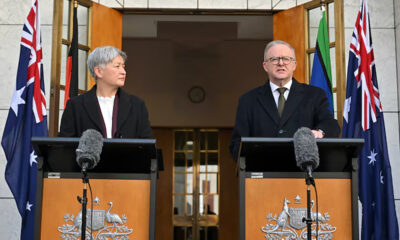Latest News
Facebook faces growing criticism after Australia news ban

Facebook is facing mounting criticism after it blocked news content in Australia amid a dispute with the government over a planned law which will reportedly force tech giants to pay for news content on their platforms.
According to BBC, Facebook says the legislation “fundamentally misunderstands” its relationship with publishers.
But politicians, publishers and rights groups in several countries have accused it of bullying, and raised concerns over access to information.
BBC states that under Facebook’s new rules, Australian users are blocked from viewing and sharing local and international news, while local publishers are restricted from sharing or posting any links on their pages.
However, reports soon emerged that several Australian government health and emergency pages were also blocked. BBC reported that Facebook later said this was a mistake and many of these pages are now back online.
But Australian Prime Minister Scott Morrison said the social media company’s actions to “unfriend Australia” were “as arrogant as they were disappointing”.
He said he was in “regular contact with the leaders of other nations” over the issue and would not be “intimidated”.
BBC reported that Morrison has raised the issue with Indian Prime Minister Narendra Modi, as he sought to gain international support, according to the Sydney Morning Herald.
Other Australian officials have also criticised the move. Treasurer Josh Frydenberg said the ban on news information had a “huge community impact”. About 17 million Australians visit the social media site every month. It is the most important social platform for news in the country.
Western Australia Premier Mark McGowan accused Facebook of “behaving like a North Korean dictator”, BBC reported.
Meanwhile, Human Rights Watch’s Australia director said Facebook was censoring the flow of information, calling it a “dangerous turn of events”.
A local campaigner with rights group Amnesty International said it was “extremely concerning that a private company is willing to control access to information that people rely on”.
The move also faced criticism outside Australia.
BBC reported that Julian Knight, the head of the British parliamentary committee overseeing the media industry, called Facebook’s action “bullying”.
“I think it’s staggeringly irresponsible – at a time when we are facing a plethora of fake news and disinformation in relation to the Covid vaccine,” he told the BBC.
“This is not just about Australia. This is Facebook putting a marker down, saying to the world that ‘if you do wish to limit our powers… we can remove what is for many people a utility’.”
Global publishers also reacted, with the company behind the Guardian newspaper saying it was “deeply concerned”.
The head of Germany’s BDZV news publishers’ association said it was “high time that governments all over the world limit the market power of the gatekeeper platforms”, BBC reported.
Many Australian users are also angry about their sudden loss of access to trusted and authoritative sources.
“It feels obviously very restrictive in what Facebook is going to allow people to do in the future, not only in Australia but around the world,” Peter Firth, in Sydney, told the BBC.
Latest News
Continued aid to Afghanistan vital for regional security: Kazakh president

Kazakhstan’s President Kassym-Jomart Tokayev has emphasized the continuation of humanitarian assistance to Afghanistan, stating that the ongoing provision of such aid plays an important role in ensuring regional security.
Speaking at the international conference “Peace and Trust” in Ashgabat, the capital of Turkmenistan, Tokayev described addressing complex humanitarian challenges and the reconstruction of Afghanistan as a necessity.
“To ensure regional security, we consider it essential to continue providing assistance to Afghanistan, including by strengthening international efforts to address complex humanitarian issues and the reconstruction of this country. Kazakhstan remains committed to supporting the people of Afghanistan through humanitarian aid, educational projects, trade development, and food security initiatives,” he said.
Meanwhile, experts believe that sustainable improvement of the humanitarian situation in Afghanistan requires broad cooperation from the international community and support for the country’s economic development.
“Investment can be defined as one of the fundamental drivers of the economic cycle, and whenever Afghan traders do not take their money out of the country and instead invest domestically, it naturally leads to greater growth and dynamism in Afghanistan’s economy,” said Abdul Zahoor Modabber, an economic analyst.
As the humanitarian crisis in Afghanistan continues, reports by international relief organizations indicate that millions of citizens of the country are in urgent need of food, health, and livelihood assistance.
The reduction in funding for aid organizations, the impacts of climate change, and the return of migrants have increased concerns about a further deterioration of the humanitarian situation in the country.
Latest News
Islamic Emirate declines to attend Tehran meeting on Afghanistan
Latest News
Sirajuddin Haqqani: A government that intimidates its people is not a true government

Khalifa Sirajuddin Haqqani, Minister of Interior of the Islamic Emirate of Afghanistan, said during a visit to Khost province on Friday that any government which rules through fear cannot be considered a true government.
“A government is one that is loved by its people, one that serves them with respect and compassion, and from whose behavior people learn ethics and sincerity,” he said.
Haqqani also stressed that Afghans who opposed the Islamic Emirate in the past should be tolerated and treated in a way that helps eliminate hostility and animosity, paving the way for national cohesion.
-

 Sport4 days ago
Sport4 days agoILT20: Desert Vipers edge Gulf Giants in historic super over thriller
-

 Latest News2 days ago
Latest News2 days agoMuttaqi: Afghanistan’s progress requires both religious and modern education
-

 Regional4 days ago
Regional4 days agoSix Pakistani soldiers killed in TTP attack in Kurram District
-

 Business4 days ago
Business4 days agoTrade bodies warn almost 11,000 Afghan transit containers stuck at Karachi port
-

 World4 days ago
World4 days agoPowerful 7.6 earthquake hits northern Japan, tsunami warnings issued
-

 Latest News3 days ago
Latest News3 days agoTrump calls Afghanistan a ‘hellhole’ country as US expands immigration restrictions
-

 Sport5 days ago
Sport5 days agoSorkh Poshan Khafi defeats Sarsabz Yashlar 4-0 in Afghanistan Champions League
-

 Sport3 days ago
Sport3 days agoCommanding wins for Arman FC and Sarsabz Yashlar in Afghanistan Champions League






























